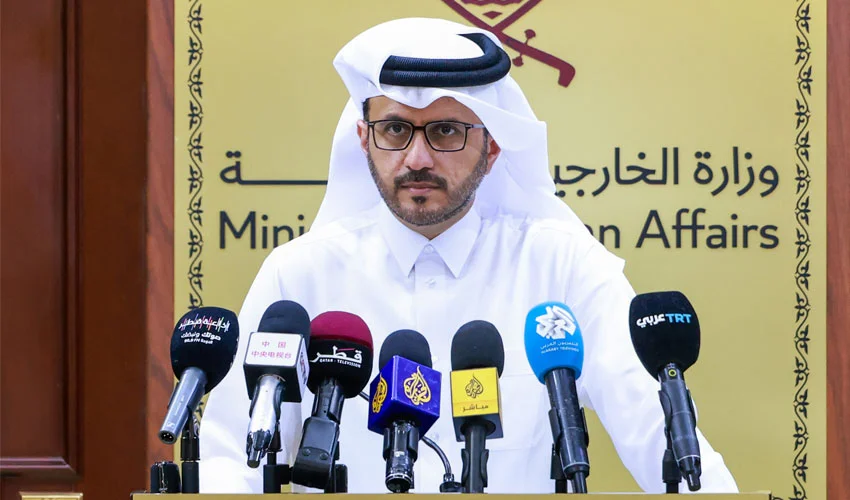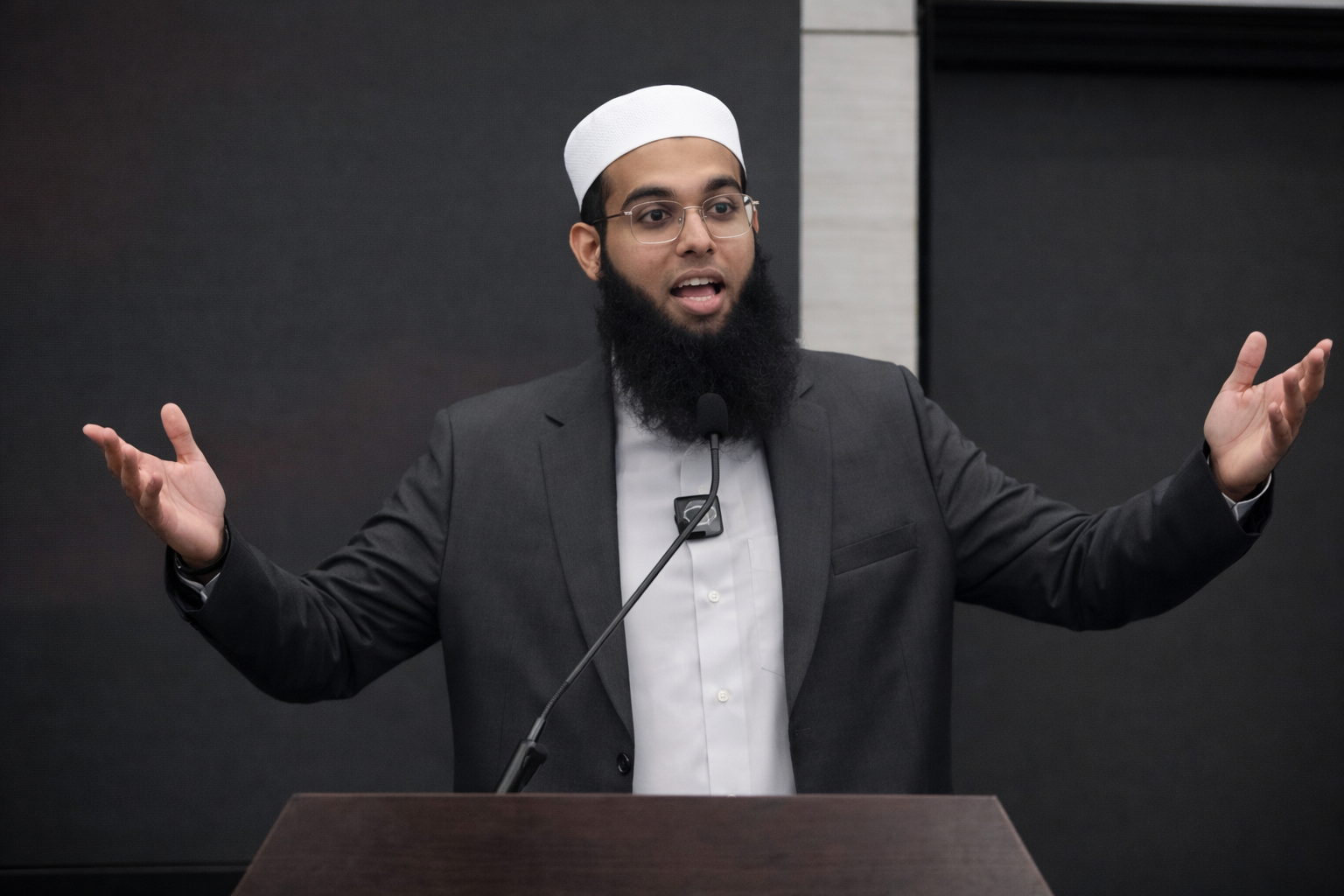Diplomatic Firestorm Erupts
On September 10, 2025, Qatar firmly rejected US claims that it was warned before Israel’s surprise airstrike in Doha targeting Hamas leaders, escalating tensions in a region already on edge. The Qatar Denies US Claim statement has sparked global outrage, with Doha calling the attack a “cowardly” violation of its sovereignty. This bold rebuttal, coupled with President Donald Trump’s frustration, has put the controversy in the spotlight, raising questions about trust and diplomacy.
The Qatar Denies US Claim news has set social media buzzing, with reactions pouring in as Pakistan celebrates Eid Milad-un-Nabi and flood relief efforts continue. Here’s the full story on Qatar Denies US Claim, its impact, and what it means for the Middle East.
What Sparked the Qatar Denies US Claim Controversy?
The Qatar Denies US Claim saga began on September 9, 2025, when Israel launched a targeted airstrike in Doha’s West Bay Lagoon, aiming at Hamas leaders, including chief negotiator Khalil Al-Hayya, during Gaza ceasefire talks. The attack, involving over 10 Israeli fighter jets and 10 munitions, killed six people, including a Qatari security officer, though Hamas claimed its negotiators survived. The US, through White House Press Secretary Karoline Leavitt, said it informed Qatar of the impending strike via envoy Steve Witkoff. However, Qatar’s Foreign Ministry spokesperson Majed Al Ansari refuted this, stating, “The call from a US official came during the sound of explosions,” calling US claims “baseless.” The statement was posted on X, intensifying the diplomatic row.
Qatar’s Prime Minister Sheikh Mohammed bin Abdulrahman Al Thani labeled the strike “state terrorism,” accusing Israel of undermining peace efforts. The Qatar Denies US Claim response came as Trump, on Truth Social, distanced himself, saying, “This was a decision made by [Israeli] Prime Minister Netanyahu, not by me,” and expressed regret over the attack’s location in a key US ally.
Why This Matters
The Qatar Denies US Claim controversy is a game-changer for regional diplomacy. Qatar, a vital US ally hosting the Al Udeid Air Base with 10,000 US troops, has been a lead mediator in Gaza ceasefire talks since October 2023. The Qatar Denies US Claim rebuttal highlights a trust deficit, as the attack disrupted discussions on Trump’s ceasefire proposal, which Hamas called a “humiliating surrender document.” With over 60,000 killed in Gaza since 2023, the moment underscores the fragility of peace efforts.
READ NEXT: Khawaja Asif Muslim Unity: Pakistan minister urges OIC to unite vs Israel
The Qatar Denies US Claim fallout challenges US credibility, as allies like Saudi Arabia and the UAE condemned Israel’s “brutal aggression.” In Pakistan, where flood relief and Eid festivities dominate, the news resonates as a call for justice, aligning with Khawaja Asif’s recent plea for Muslim unity against Israel. It’s a pivotal moment for Qatar’s role as a regional peace hub.
Public Reaction and Social Media Buzz
The Qatar Denies US Claim news exploded across X on September 10, 2025. Supporters of Qatar posted, “Qatar Denies US Claim Doha deserves the truth!” Others shared, “Israel’s attack was reckless!” Hashtags like #QatarDeniesUSClaim trended, with videos of Doha’s smoky skyline going viral. One user wrote, “Qatar Denies US Claim stop the lies, support peace!”
Critics, however, debated the logistics, with one X post asking, “Qatar Denies US Claim why no warning?” Others questioned Israel’s motives, saying, “Netanyahu’s move risks everything.” The buzz reflects the emotional weight of echoing Pakistan’s festive spirit and Yamaha’s production halt news, blending global outrage with local resilience.
Challenges Amid the Crisis
The Qatar Denies US Claim controversy faces steep hurdles. Qatar’s mediation role, critical for Gaza talks, is now strained, with Sheikh Mohammed stating, “Current talks are no longer valid.” Rebuilding trust is tough, as disputes US narratives, with allegations that Israel used radar-evading F-35I jets. The row complicates US efforts to balance support for Israel with Qatar’s strategic importance, especially after Trump’s assurance that such attacks “will not happen again.”
Israel’s defense, with Netanyahu calling the strike “fully justified” for targeting Hamas leaders behind the October 7, 2023, attack, adds friction. The Qatar Denies US Claim moment risks escalating tensions, with Iran and the UN condemning Israel’s “flagrant violation.” Coordinating a response amid Pakistan’s flood relief for 760,424 displaced and global events like the Blood Moon eclipse adds complexity to the Qatar Denies US Claim narrative.
A Glimmer of Resilience
The Qatar Denies US Claim statement showcases Qatar’s resolve to protect its sovereignty One X post captured it: standing strong for justice!” Qatar’s commitment to continue mediation, despite the attack
The Qatar Denies US Claim moment highlights the need for transparency, with Trump promising a full statement on September 10, 2025. It’s a call for accountability, urging nations to prioritize peace, aligning with global pleas for a Gaza ceasefire. Thenarrative inspires hope for diplomatic clarity in a turbulent region.
What’s Next for Qatar Denies US Claim Fallout?
The Qatar Denies US Claim controversy sets the stage for intense diplomacy. Qatar’s legal team is exploring actions against Israel, while Trump’s upcoming statement will clarify US policy. The row may shift ceasefire talks to Egypt, as Qatar rethinks its mediation role. Israel’s ongoing Gaza operations, including Gaza City evacuations, signal continued tensions.
Global citizens are urged to follow updates and support peace efforts. The Qatar Denies US Claim news is a call to reflect on trust and justice, resonating with Pakistan’s spirit amid Eid and flood recovery. As the region navigates this crisis, stay tuned for updates on and its global impact.



